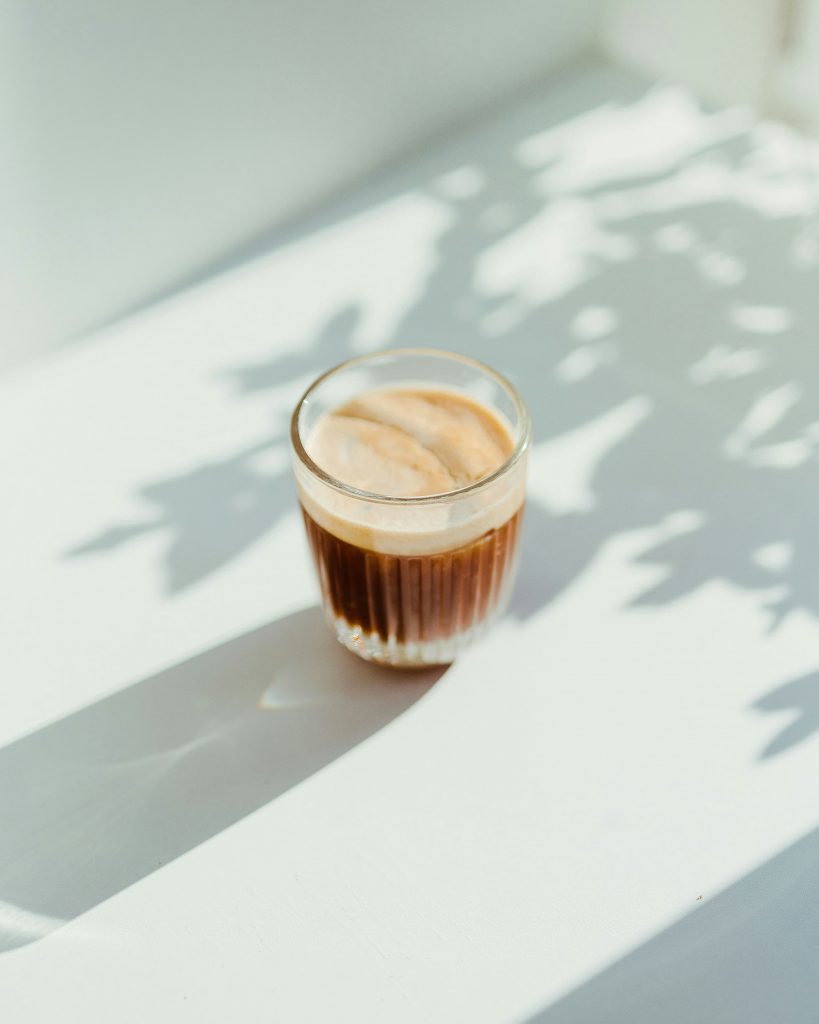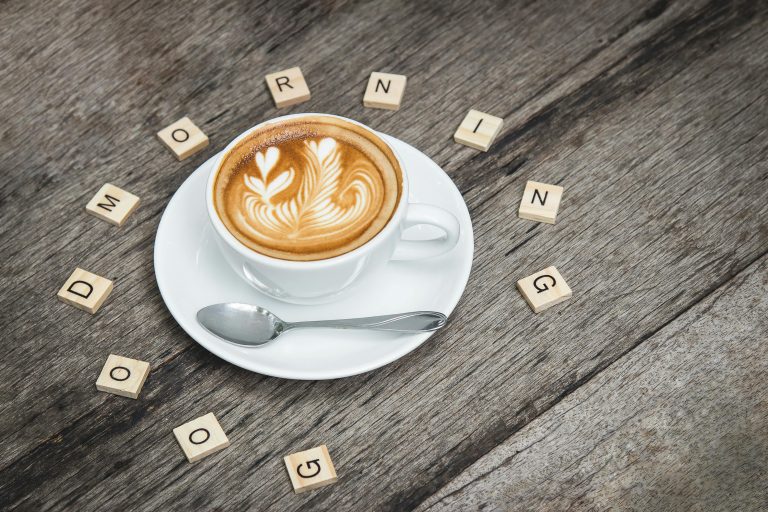Love a latte? Expert Annie Deadman shares her advice on how to make your favourite brew work for you.
“I expect you’re reading this with a little trepidation. Perhaps you’re thinking I’m going to suggest we beat ourselves with the holistic stick and stop our caffeine intake in its tracks. How could I? [slurps coffee], that’s unnecessary. and cruel!
Remember our pledge to improve the quality of the blood running through our veins? We aim to do this by exercising and eating mainly nourishing whole foods punctuated by moderate amounts of what we fancy. Well, the same applies to caffeine. Nothing is banned. Let’s have a closer look at caffeine.
Obviously, the effects we feel after drinking caffeine will depend on our own tolerance levels. For some, mornings are unthinkable without a coffee, claiming it brings with it a welcome jolt. For others, though, it simply brings on feelings of anxiety, palpitations, migraines and even disturbed sleep.
In caffeine terms, a mug of brewed coffee contains an average of 110 mg, a cup of instant coffee about 60-70 mg and a cup of standard tea around 75 mg. Apparently, 400 mg caffeine per day is considered a safe level for most adults (halve that for pregnant women), but everyone’s tolerance levels are different.

So, exactly how does it put a spring in our step? Caffeine is absorbed into the body via the gastrointestinal tract and up into the brain, where the release of cortisol and adrenaline steps up, and we become focused and alert. In terms of energy and getting things done, a shot of caffeine is good for a little shove. That’s if your body can take it.
Sleepless nights, ignoring the tremors, dizziness and headaches while you’re having 10-15 cups a day may only result in something more serious. Swap to decaffeinated coffee or a herbal hot drink you like. A moderate amount (4-5 cups a day) of coffee and tea should not be detrimental to heart health – there is actually a link between caffeine and living longer, although more research needs to be done.
Check how you take your beverage too. The type of milk, how much sugar you have, the use of syrups and flavourings, the biscuits that must go with it… these can all increase cholesterol and kilojoules.
Put that caffeine-related energy to good use with a 30-minute power walk. You’ll feel so energised!”
Annie is a fat-loss and fitness coach. Follow her on Instagram for health tips and lots of laughs too.
ALSO SEE: Grab a morning cuppa at these 5 coffee shops in Stellenbosch
Grab a morning cuppa at these 5 coffee shops in Stellenbosch
Written by Savanna Douglas for Woman&Home.
Feature image: Pexels

